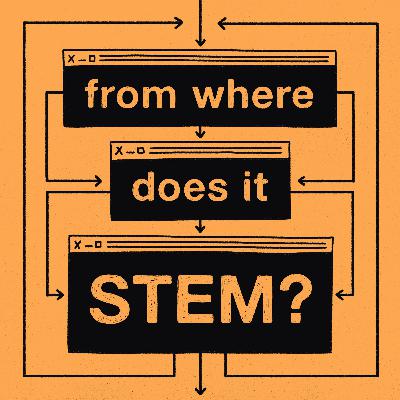Building Trust in Science Requires Diversity: Dr. Freeman Hrabowski
Description
In this episode, I interviewed Dr. Freeman Hrabowski, the President Emeritus of The University of Maryland, Baltimore County (UMBC).
Per his website:
He has given numerous TED talks and chaired the National Academies’ committee that produced the report, Expanding Underrepresented Minority Participation: America’s Science and Technology Talent at the Crossroads. President Obama named him chair of the President’s Advisory Commission on Educational Excellence for African Americans in 2012.
In 1988, he co-founded the Meyerhoff Scholars Program. The program is recognized as a national model in supporting high-achieving students committed to pursuing graduate and professional degrees and research careers in STEM and advancing underrepresented minorities in these fields.
In 2022, Dr. Hrabowski was elected to the National Academy of Engineering, and he was also named the inaugural Centennial Fellow by the American Council on Education. In addition, the Howard Hughes Medical Institute (HHMI) launched the Freeman Hrabowski Scholars Program in 2022 with a commitment of $1.5 billion to help build a scientific workforce that more fully reflects our increasingly diverse country.
In April 2023, the National Academy of Sciences awarded him the Public Welfare Medal, the Academy’s most prestigious award, and inducted him as a member of the Academy, for his extraordinary use of science for the public good.
In 2008, he was named one of America’s Best Leaders by U.S. News & World Report, which ranked UMBC the nation’s #1 “Up and Coming” university for six years (2009-14). For the past nine years (2015-23), U.S. News ranked UMBC in the top ten on a list of the nation’s “most innovative” national universities. U.S. News also consistently ranks UMBC among the nation’s leading institutions for “Best Undergraduate Teaching.” TIME magazine named Dr. Hrabowski one of America’s 10 Best College Presidents in 2009, and one of the“100 Most Influential People in the World” in 2012. In 2011, he received both the TIAA-CREF Theodore M. Hesburgh Award for Leadership Excellence and the Carnegie Corporation of New York’s Academic Leadership Award, recognized by many as the nation’s highest awards among higher education leaders. Also in 2011, he was named one of seven Top American Leaders by The Washington Post and the Harvard Kennedy School’s Center for Public Leadership. In 2012, he received the Heinz Award for his contributions to improving the human condition and was among the inaugural inductees into the U.S. News & World Report STEM Solutions Leadership Hall of Fame. More recently, he received the American Council on Education’s Lifetime Achievement Award (2018), the University of California, Berkeley’s Clark Kerr Award (2019), the University of California, San Francisco’s UCSF Medal (2020), and the New American Colleges and Universities Ernest L. Boyer Award (2021).
He serves as a consultant to the NSF, the NIH, the National Academies, and universities and school systems nationally. He has served on many national boards, including the Alfred P. Sloan Foundation
He has been elected into the American Association for the Advancement of Sciences (AAAS), the National Academy of Public Administration, and the American Philosophical Society; receiving many awards such as the prestigious McGraw Prize in Education, the U.S. Presidential Award for Excellence in Science, Mathematics, and Engineering Mentoring. He also holds honorary degrees from nearly 50 institutions – including Harvard, Princeton, Duke, the University of Michigan, the University of North Carolina - Chapel Hill, Johns Hopkins University, and Georgetown University.





